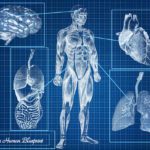The healthcare industry is experiencing unprecedented growth, creating exceptional opportunities for health science graduates. A health science degree equips you with versatile skills that span across multiple healthcare sectors, from direct patient care to administrative leadership roles.
Key Career Opportunities with a Health Science Degree:
- Clinical Positions (Physical Therapy, Nursing, Diagnostic Services)
- Healthcare Administration
- Public Health Services
- Research and Development
- Health Education
- Wellness Program Management
- Medical Technology
- Health Informatics
The U.S. Bureau of Labor Statistics projects a remarkable 13% growth in healthcare occupations through 2033, translating to approximately 1.9 million new job openings annually. This surge stems from:
- Aging population requiring increased medical care
- Technological advancements in healthcare delivery
- Growing focus on preventive health services
- Rising demand for specialized healthcare professionals
Your health science degree serves as a gateway to these expanding opportunities, providing a solid foundation in both scientific principles and practical healthcare applications. Whether you’re drawn to hands-on patient care, cutting-edge research, or healthcare leadership, this versatile degree positions you for success in roles that directly impact community health and well-being.
Understanding Health Science Degree and Its Curriculum
A Bachelor of Health Science degree serves as a comprehensive educational foundation that bridges scientific knowledge with practical healthcare applications. This interdisciplinary program equips students with essential skills and knowledge required to address complex health challenges in modern healthcare settings.
Core Components of Health Science Education:
1. Biological Sciences
- Human Anatomy and Physiology
- Microbiology
- Genetics
- Chemistry
2. Healthcare Management
- Health Policy
- Healthcare Economics
- Quality Management Systems
- Legal and Ethical Considerations
3. Public Health
- Epidemiology
- Population Health
- Health Promotion
- Disease Prevention Strategies
4. Research Methods
- Biostatistics
- Data Analysis
- Evidence-Based Practice
- Clinical Research Principles
The curriculum integrates hands-on laboratory work, case studies, and practical experiences through internships or clinical rotations. Students develop critical analytical skills through research projects and real-world problem-solving scenarios.
Essential Skills Developed:
1. Clinical Competencies
- Patient assessment techniques
- Medical terminology proficiency
- Healthcare technology usage
- Documentation practices
2. Professional Capabilities
- Critical thinking and problem-solving
- Interprofessional communication
- Cultural competency
- Leadership abilities
3. Technical Proficiencies
- Health information systems
- Data analysis tools
- Medical software applications
- Research methodologies
Health science programs often offer specialization tracks allowing students to focus on specific areas:
- Healthcare Administration
- Clinical Research
- Public Health Education
- Health Informatics
- Patient Care Services
These specialized pathways enable students to tailor their education to align with their career goals while maintaining a strong foundation in core health sciences. The program structure emphasizes practical application of theoretical knowledge through:
- Simulation exercises
- Laboratory experiments
- Clinical observations
- Research projects
- Internship opportunities
Students gain exposure to current healthcare technologies and practices through state-of-the-art facilities and partnerships with healthcare institutions. This practical experience proves invaluable for career preparation and professional development.
For instance, the study of Human Anatomy and Physiology is crucial in the biological sciences component of the curriculum, where effective study techniques can significantly enhance academic success in healthcare fields. Moreover, online human physiology classes provide flexible learning formats that can further boost a student’s understanding and career prospects in health science.
Exploring Diverse Career Paths in Health Science
A health science degree opens up many career opportunities in the healthcare field. Your professional journey can go in various directions, including direct patient care and specialized clinical services.
Clinical Roles in Health Science
Clinical roles are essential for delivering healthcare services. They place you directly in charge of patient care and treatment. These positions require you to interact with patients and possess a combination of technical skills and interpersonal abilities.
1. Physical Therapy
- Assess and treat patients with movement disorders
- Design personalized rehabilitation programs
- Work in hospitals, private clinics, or sports facilities
Average salary: $95,620 per year | Required certification: Doctor of Physical Therapy (DPT)
2. Diagnostic Sonography
- Operate specialized imaging equipment
- Create detailed images for medical diagnosis
- Specialize in specific body systems (cardiac, vascular, obstetric)
Average salary: $77,740 per year | Required certification: ARDMS certification
3. Clinical Laboratory Technology
- Analyze biological samples
- Perform complex medical tests
- Support disease diagnosis and treatment
Average salary: $57,800 per year | Required certification: Medical Laboratory Scientist (MLS)
4. Respiratory Therapy
- Treat patients with breathing disorders
- Manage ventilation equipment
- Provide emergency care
Average salary: $68,190 per year | Required certification: Certified Respiratory Therapist (CRT)
5. Occupational Therapy
- Help patients regain daily living skills
- Create adaptive environments
- Work with diverse patient populations
Average salary: $85,570 per year | Required certification: Master’s in Occupational Therapy
6. Clinical Research Coordination
- Manage medical research studies
- Collect and analyze patient data
- Ensure compliance with protocols
Average salary: $63,930 per year | Required certification: ACRP or SOCRA certification
Each clinical role requires specific skill sets:
Essential Clinical Skills
- Patient assessment
- Medical documentation
- Treatment planning
- Emergency response
- Infection control
- Equipment operation
Work Environments
- Hospitals
- Outpatient clinics
- Rehabilitation centers
2. Non-Clinical Roles in Health Science
A health science degree opens doors to numerous non-clinical career paths that shape healthcare delivery and outcomes behind the scenes. These roles prove essential in maintaining efficient healthcare systems and advancing public health initiatives.
1. Healthcare Administration and Management
- Hospital Operations Manager
- Practice Administrator
- Healthcare Finance Director
- Quality Improvement Coordinator
- Medical Office Manager
Healthcare administrators drive organizational success through strategic planning, resource allocation, and staff management. They implement policies, ensure regulatory compliance, and optimize operational efficiency while maintaining high-quality patient care standards.
2. Research and Development
- Clinical Research Coordinator
- Health Data Analyst
- Medical Writer
- Research Project Manager
- Pharmaceutical Research Assistant
Research professionals advance medical knowledge through systematic studies, data analysis, and documentation. They coordinate clinical trials, analyze health outcomes, and contribute to developing new treatments and healthcare interventions.
3. Health Policy and Advocacy
- Health Policy Analyst
- Healthcare Lobbyist
- Public Health Program Coordinator
- Healthcare Consultant
- Community Health Director
These roles influence healthcare systems at local, state, and national levels. Policy analysts evaluate healthcare programs, recommend improvements, and develop strategies to address public health challenges.
4. Health Education and Communication
- Health Education Specialist
- Corporate Wellness Coordinator
- Patient Education Coordinator
- Health Communications Manager
- Public Health Outreach Specialist
Health educators design and implement programs to promote health awareness and prevent disease. They create educational materials, conduct workshops, and develop strategies to improve community health outcomes.
5. Healthcare Technology and Informatics
- Health Information Manager
- Healthcare Systems Analyst
- Electronic Health Records Specialist
- Healthcare IT Project Manager
- Digital Health Solutions Coordinator
These professionals bridge the gap between healthcare delivery and technology. They manage health information systems, analyze healthcare data, and implement digital solutions to improve patient care and operational efficiency.
Leadership skills prove crucial across these non-clinical roles. Successful professionals demonstrate:
- Strategic thinking and decision-making abilities
- Strong project management capabilities
- Effective communication across diverse stakeholder groups
- Financial acumen and budget management expertise
- Change management and innovation mindset
The demand for skilled professionals in non-clinical roles continues to grow as healthcare organizations expand and evolve. These positions offer competitive salaries, advancement opportunities, an
Advancing Your Career with a Health Science Degree
A health science degree serves as a springboard for career advancement through specialized education and professional development opportunities. Your initial degree equips you with foundational knowledge, while additional certifications and advanced degrees can accelerate your career progression.
Advanced Degree Options for Health Science Graduates:
1. Master of Public Health (MPH)
- Specializations in epidemiology, biostatistics, or health policy
- Average salary increase of 20-30% compared to bachelor’s degree holders
- Enhanced leadership opportunities in government agencies and healthcare organizations
2. Master of Health Administration (MHA)
- Focus on healthcare management and organizational leadership
- Preparation for executive-level positions
- Typical salary range: $80,000 – $200,000+
3. Master of Science in Health Informatics
- Integration of healthcare and technology
- High-demand field with growing job opportunities
- Median salary: $95,000 annually
Professional Certifications to Consider:
- Certified Health Education Specialist (CHES)
- Registered Health Information Administrator (RHIA)
- Project Management Professional (PMP) with healthcare focus
- Certified Professional in Healthcare Quality (CPHQ)
Specialization Pathways
Your career advancement can take multiple directions based on your interests:
Research Track
- Clinical Research Coordinator → Research Manager → Director of Research Operations
- Starting salary: $45,000 → Advanced positions: $120,000+
Administrative Track
- Healthcare Administrator → Department Manager → Chief Operating Officer
- Entry-level: $55,000 → Executive positions: $150,000+
Education Track
- Health Educator → Program Director → Academic Department Head
- Beginning salary: $42,000 → Senior positions: $85,000+
Skills Enhancement Opportunities
- Data analytics and healthcare software proficiency
- Leadership and team management training
- Grant writing and research methodology
- Healthcare policy and compliance expertise
Professional development in health science often combines formal education with practical experience. Many employers offer tuition reimbursement programs and flexible schedules to accommodate advanced studies. Remote learning options make it possible to pursue additional credentials while maintaining
Job Outlook and Salary Potential in Health Science Careers
The health science job market shows remarkable growth potential through 2033. The U.S. Bureau of Labor Statistics projects a 13% increase in healthcare occupations, creating approximately 1.9 million job openings annually. This growth rate surpasses most other industries, driven by an aging population and increased focus on preventive care.
Salary Ranges by Role:
- Healthcare Administrators: $110,000 – $189,000
- Clinical Research Coordinators: $65,000 – $95,000
- Health Informatics Specialists: $75,000 – $120,000
- Public Health Specialists: $55,000 – $98,000
- Medical Laboratory Technologists: $54,000 – $85,000
- Genetic Counselors: $85,000 – $125,000
Key Factors Affecting Salary Potential:
- Geographic LocationUrban areas typically offer higher salaries
- States like California, New York, and Massachusetts lead in compensation
- Rural areas may offer unique benefits and lower cost of living
- Experience LevelEntry-level positions start at 60-70% of median salary
- 5+ years experience can increase earnings by 25-40%
- Leadership roles command premium salaries
- SpecializationAdvanced certifications boost earning potential
- Niche expertise commands higher compensation
- Emerging fields like health informatics offer competitive packages
High-Growth Areas in Health Science:
- Telehealth Services: 40% projected growth
- Health Data Analytics: 35% increase in demand
- Preventive Care Specialists: 25% growth rate
- Remote Patient Monitoring: 30% expansion
The job market varies by region, with metropolitan areas showing the highest concentration of health science positions. States experiencing healthcare workforce shortages often provide additional incentives, including signing bonuses and relocation assistance.
Private sector roles typically offer higher base salaries, while government and non-profit positions balance lower salaries with enhanced benefits packages and work-life balance. Healthcare startups present opportunities for equity compensation and rapid advancement.
Salary progression accelerates with
Navigating the Evolving Landscape of the Healthcare Industry
The healthcare industry continuously transforms through technological innovation and shifting patient care models. You’ll encounter these key developments shaping the future of healthcare employment:
1. Digital Health Revolution
- Telehealth platforms enabling remote patient consultations
- AI-powered diagnostic tools and treatment planning
- Wearable devices for patient monitoring
- Electronic Health Records (EHR) management systems
- Virtual reality applications in medical training
2. Preventive Care Focus
- Population health management programs
- Wellness initiatives and lifestyle medicine
- Genetic testing and personalized medicine
- Community-based health education
- Data analytics for early disease detection
3. Emerging Healthcare Models
- Value-based care systems
- Patient-centered medical homes
- Integrated care delivery networks
- Retail health clinics
- Home-based care services
To stay competitive in this dynamic environment, health science professionals can implement these strategic approaches:
1. Professional Development Strategies
- Pursue specialized certifications in emerging technologies
- Join professional associations in your field
- Attend industry conferences and workshops
- Participate in online learning platforms
- Build a strong professional network
2. Skills Enhancement
- Develop digital literacy for new healthcare technologies
- Learn data analysis and interpretation
- Practice cross-functional collaboration
- Master patient engagement techniques
- Study healthcare compliance regulations
3. Career Advancement Tactics
- Seek mentorship opportunities
- Take on leadership roles in projects
- Create a personal development plan
- Track industry innovations
- Build expertise in specific health conditions or populations
The integration of artificial intelligence, robotics, and genomics continues to create new roles and responsibilities within healthcare. You’ll find opportunities in emerging fields such as clinical informatics, precision medicine, and digital health consulting. Healthcare organizations now seek professionals who can bridge the gap between traditional medical knowledge and technological innovation.
Remote healthcare delivery has accelerated the need for professionals skilled in virtual care coordination and digital patient engagement. This shift creates opportunities for roles in telehealth program management, virtual care technology implementation, and remote patient monitoring.
Conclusion
A health science degree opens up many opportunities in a constantly changing and fulfilling industry. Your success in this field depends on your willingness to:
- Explore Different Specializations
- Shadow professionals in various roles
- Attend healthcare career fairs
- Join professional associations
- Network with industry experts
- Gain Hands-On Experience
- Secure relevant internships
- Participate in volunteer programs
- Work part-time in healthcare settings
- Engage in research projects
- Stay Current and Competitive
- Subscribe to healthcare industry newsletters
- Take additional certifications
- Attend workshops and seminars
- Follow healthcare technology trends
The healthcare industry needs passionate professionals ready to make a difference. Your health science degree gives you important skills and knowledge—the rest depends on your motivation and commitment. Start building your career path today by finding areas that match your interests and values.
Remember: The most successful health science professionals combine their academic knowledge with practical experience and continuous learning. Whether you’re interested in clinical practice, research, administration, or public health, your dedication to growth and adaptability will determine your success in this ever-changing field.
Take the first step toward your healthcare career. There are many opportunities available, and you have the power to make a significant impact.
FAQs (Frequently Asked Questions)
What career opportunities are available with a health science degree?
A health science degree opens doors to diverse and fulfilling careers in the healthcare industry, including clinical roles like physical therapy and nursing, as well as non-clinical positions in healthcare administration, policy development, and research coordination.
What skills do I gain from a health science degree program?
Through a health science degree program, students acquire valuable skills such as critical thinking, effective communication, and research abilities that are highly sought after by employers in various healthcare settings.
Can I advance my career with further education after earning a health science bachelor’s degree?
Yes, health science graduates can pursue specialized master’s programs in high-demand areas like public health or healthcare informatics to specialize further and qualify for advanced positions within their field.
What is the job outlook and salary potential for health science majors?
The healthcare sector is projected to experience significant growth over the next decade, offering numerous job openings annually. Median salaries vary across roles but are influenced by factors such as experience level and geographic location.
What are some examples of clinical roles available to health science graduates?
Clinical roles that require specialized training and certification include physical therapy, diagnostic sonography, and nursing. These positions involve direct patient care and contribute significantly to delivering quality healthcare services.
How can I stay competitive in the evolving healthcare industry with a health science degree?
Staying informed about emerging trends such as technological advancements and preventive care focus, along with ongoing professional development through internships, volunteer work, and continuing education, helps maintain competitiveness in the rapidly changing healthcare job market.



